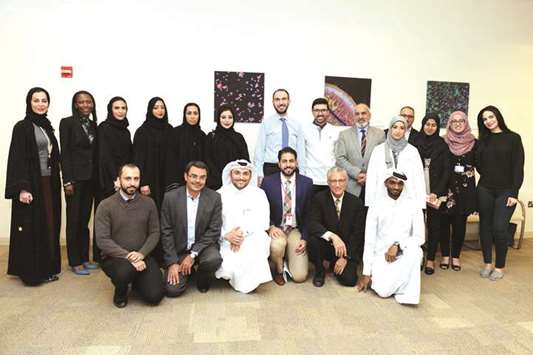Recent graduates of the college, many of whom are working as doctors at Hamad Medical Corporation (HMC) and Sidra Medicine, were invited to the WCM-Q first research opportunities symposium to learn more about the ways they could become physician scientists – doctors who practice medicine but also undertake research to increase medical knowledge. This also allows doctors to work on areas of special interest to them and, if their work is significant, to gain an international reputation and enhance their careers.
Dr Robert Crone, vice dean for clinical and faculty affairs and professor of clinical paediatrics at WCM-Q, said, “Thanks to very considerable investment and visionary leadership in recent years, Qatar now has the state-of-the-art facilities and talented professionals required to conduct biomedical research at the highest level. Our message to WCM-Q alumni is simple: take advantage of these unique circumstances and engage yourself in research that will further your own career and – most importantly – help to improve the health of patients in Qatar and the wider world.”
WCM-Q graduate doctors who attended the symposium heard from Dr Ibrahim Janahi, executive director of medical research at HMC, who told them that research is one of the three pillars of the organisation – along with healthcare and education – and that it is vital to HMC’s role as an academic health system. Dr Janahi underlined the importance of research in driving change in clinical practices and improving outcomes for patients. He also stressed the support that HMC offers physician doctors, both financially and logistically, to ensure their research is valid and meets the highest of international requirements.
Dr Khaled Machaca, associate dean for research at WCM-Q, discussed the development of WCM-Q’s research programme and the infrastructure that the college has at its disposal, including core laboratories in genomics, proteomics, microRNA, and bioinformatics, and metabolomics – the resources of which could be utilised for agreed research studies. He also spoke of the impact that WCM-Q research is having, with almost 16,000 citations in scholarly works since the biomedical research programme was launched in 2009, achievements that are placing Qatar firmly on the scientific world map.
The criteria required for funding from the Qatar National Research Fund (QNRF) and how to apply for it formed the basis of Dr Laith Abu-Raddad’s presentation. WCM-Q’s assistant dean for extramural research funding gave an overview of QNRF’s funding programmes and outlined the focus of QNRF’s National Priorities Research Programme. This includes cancers, genetic diseases, epidemiology studies, alongside diabetes, obesity, hypertension, and cardiovascular complications.

